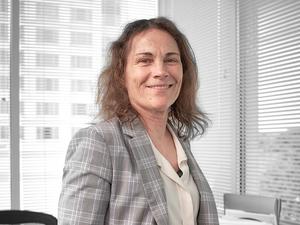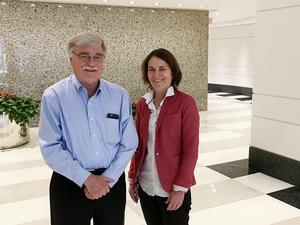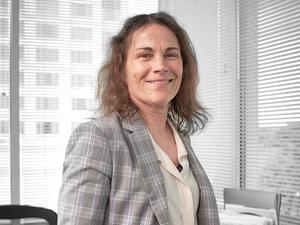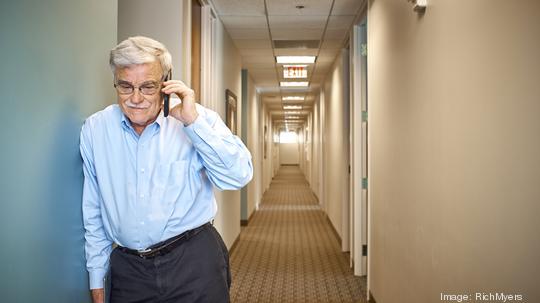
A West Conshohocken biopharmaceutical company's pursuit of being the first biopharmaceutical company with an approved treatment for nonalcoholic steatohepatitis, or NASH, has hit a key milestone that puts its on track for a new drug application in 2022.
Madrigal Pharmaceuticals recently completed its enrollment of more than 1,000 patients, required for its second phase 3 clinical trial testing the company's experiment once-daily pill for the inflammatory liver disease.
Dr. Becky Taub, the company's chief medical officer and president of research and development, said Madrigal (NASDAQ: MDGL) expects to complete the study a year from now and have results shortly thereafter. The company's other phase 3 study is expected to be completed this year.
"We are really targeting, aggressively, to get the NDA [new drug application] filed by the end of next year," Taub said. "We think [Madrigal's experimental NASH treatment) has the potential to be first to market based on where we are positioned with our phase 3 program, which is an exciting opportunity."
Madrigal CEO Paul Friedman said the company is not letting other company's recent failures with they NASH new drug candidates impact its plans.
"We are just very positive in where we are," Friedman said, citing the study results to date for Madrigal's experimental treatment. "We have a high degree of confidence. … We're quite optimistic about being able to move forward."
NASH is an inflammatory liver disease that commonly affects people with metabolic diseases such as obesity and diabetes. The condition causes fat accumulation in the liver that can progress to cirrhosis, or liver failure, and require liver transplantation. The condition can also lead to liver cancer.
Health officials estimate about 17 million people in the United States, or about 5% of the country's population, have NASH. According to Madrigal, progression of NASH to end stage liver disease will soon surpass all other causes of liver failure requiring liver transplantation.
"There's a big unmet need," Taub said. "This is an area of tremendous growth in terms of interest, in terms of the number of potential therapeutics," Taub said. "Also, one of the biggest areas of growth in the NASH field involves diagnostics."
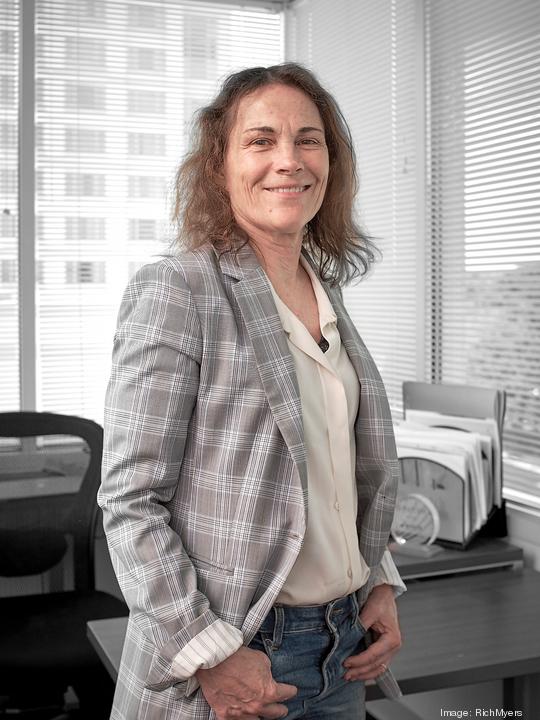
Historically, she said, NASH has been diagnosed through a liver biopsy — an infrequently used procedure. Taub said Madrigal is actively working with diagnostic companies on developing new, better and more accurate ways to diagnosis NASH non-invasively, potentially using blood tests or imaging.
Finding a treatment for the condition has proved to be an elusive task for drug developers, a growing number of which have focused on the market as the medical profession has learned more about NASH and become better at diagnosing it.
In just the past two years, about a half-dozen pharmaceutical companies including Gilead Sciences and Allergan/AbbVie have pulled the plug on experimental NASH treatments because of disappointing study results. In May, South San Francisco-based NGM Pharmaceuticals stopped development of its NASH treatment after its new drug candidate failed to meet its primary endpoint of fibrosis improvement. Merck, which has been NGM's partner, is continuing to develop a different potential NASH drug.
Last year another company, Intercept Pharmaceuticals of New York, saw its new drug application for an experimental NASH treatment rejected by the Food and Drug Administer because of the agency's uncertainty about the effectiveness of the drug. The fallout included resignations of the company's CEO and chief medical officer and the layoffs of about 170 employees, which represented 25% of the company's workforce. Intercept is in the process of responding to the concerns raised by FDA's in its complete response letter.
Founded in 2011, Madrigal has grown to about 50 employees and is led by the husband-and-wife team of Taub, the company's founder and former researcher at Roche and Bristol Myers Squibb, and Friedman, the company's CEO and the former chief executive officer at Incyte.
Madrigal's lead new drug candidate, called resmetirom, targets a specific thyroid hormone receptor pathway in the liver that is a key regulatory mechanism common to a spectrum of cardio-metabolic and fatty liver diseases including NASH.
"Our drug has a unique pathway," Taub said. "It works in the liver of NASH patients who really have abnormal liver function. It restores liver health."
The treatment in earlier-stage clinical testing has generated positive results for eliminating fat in the liver, reducing inflammation that leads to fibrosis in the liver, and lowers LDL cholesterol levels — which at high levels is linked to heart disease.
Friedman said the company expects those results to be repeated in the larger phase 3 clinical trials
In 2020, the clinical-stage company posted a net loss of $202 million and has an accumulated deficit of more than $425 million. As of Dec. 31, Madrigal had cash, cash equivalents and marketable securities totaling $284.1 million.
The company's stock has traded at between $95 and $142 per share over the last year. The stock closed Monday at $105.02.
Analysts who follow the company see a strong upside, putting recent price targets at between $180 and $220. In a report on July 7, Oppenheimer said it considers Madrigal "the current leader in NASH," and suspects the company could seek partnership opportunities for resmetirom if both phase 3 trials yield positive results.
Friedman said Covid-19 pushed back its development timeline for resmetirom by about six months as the pandemic temporarily closed sites where patients could go to get liver biopsies needed for the second of its two ate-stage clinical trials. That slowed patient recruitment.
While the company is still more than a year away from seeking approval for its NASH medicine, it has started building its commercialization infrastructure and expanding its management staff. Among its new hires are Alex Howarth, a former GlaxoSmithKline and Vitae Pharmaceuticals executive who joined the company in May as its CFO.
Friedman said most of the employee growth occurred this year, which required virtual interviews. "Zoom is pretty amazing," he said. "It's not the same as sitting in a room next to somebody, but it's pretty close."
Taub said the company's plan, should resmetirom be approved, is to target select specialists – hepatologists, gastroenterologists and endocrinologists — who most often treat patients diagnosed with NASH.
The limited target, Friedman said, means the company will require a sales team of "a couple hundred" sales representatives out in the field. Down the line, the company would consider expanding its target audience to include primary care doctors as they gain more experience with recognizing and treating NASH, Friedman said.
Madrigal's future plans also include working with a partner or partners to sell the drug outside the U.S.

